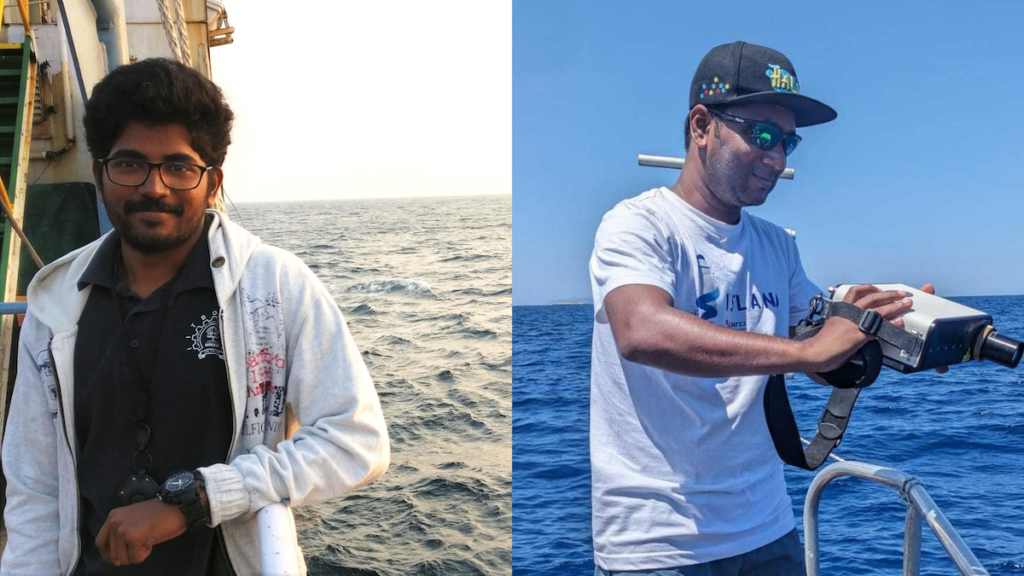
University of Georgia Skidaway Institute of Oceanography (SkIO) postdoctoral researcher Srinivas Kolluru and doctoral student Md Masud-Ul-Alam, both members of SkIO faculty member Sara Rivero Calle’s lab, will participate in a NASA hackathon happening August 4 to August 8, 2024, at the University of Maryland, Baltimore County.
The one-week, in-person hackathon is being hosted by the NASA Plankton, Aerosol, Cloud, ocean Ecosystem (PACE) Project and Ocean Carbon & Biogeochemistry (OCB) Program. It will include a mix of lectures, tutorials and coding activities geared to spur and assist research using new Earth science data streams generated by three scientific instruments, including the hyperspectral OCI (Ocean Color Instrument), SPEXone, and HARP2.
Collectively, the instruments are geared towards helping scientists develop a better understanding of Earth’s ocean and atmosphere. They provide detailed information about ocean color, aerosol properties and cloud characteristics, which give insights into ocean health, atmospheric composition and climate dynamics.
Participants of the event, including Kolluru and Masud-Ul-Alam, will spend roughly 25 percent of their time at the hackathon learning from lecturers and the other 75 percent working with PACE data and software. Participants will receive data collected by the instruments and compute resources on a cloud platform, and coding will be conducted in the Python coding language.
“It’s an interactive workshop,” explained Kolluru. “We can play with the data and implement our own ideas and determine how it will be useful for our work purposes.”
In particular, Kolluru is focused on analyzing how accurate the data is compared to that gathered from ground-based instruments currently used in the Rivero-Calle Lab.
Masud-Ul-Alam intends to pair data from the PACE instruments provided in the training with his own data in order to help build a hyperspectral algorithm, capable of turning detailed spectral data from hyperspectral sensors into actionable, more digestible information.
The training is targeted towards a diverse array of scientists from a range of backgrounds and career stages, including everyone from students to professionals. Participants will also have the opportunity to receive “behind the scenes access to all aspects” of the PACE mission, including by meeting with active members of the mission.
All course materials, including recordings of the lectures, course material and coding material, will be shared online by NASA following the completion of the event.
About SkIO
The UGA Skidaway Institute of Oceanography (SkIO) is a multidisciplinary research and training institution located on Skidaway Island near Savannah, Georgia. The Institute was founded in 1967 with a mission to conduct research in all fields of oceanography. In 2013, SkIO was merged with the University of Georgia. The campus serves as a gateway to coastal and marine environments for programs throughout the University System. The Institute’s primary goals are to further the understanding of marine and environmental processes, conduct leading-edge research on coastal and marine systems, and train tomorrow’s scientists. For more information, visit www.skio.uga.edu.


